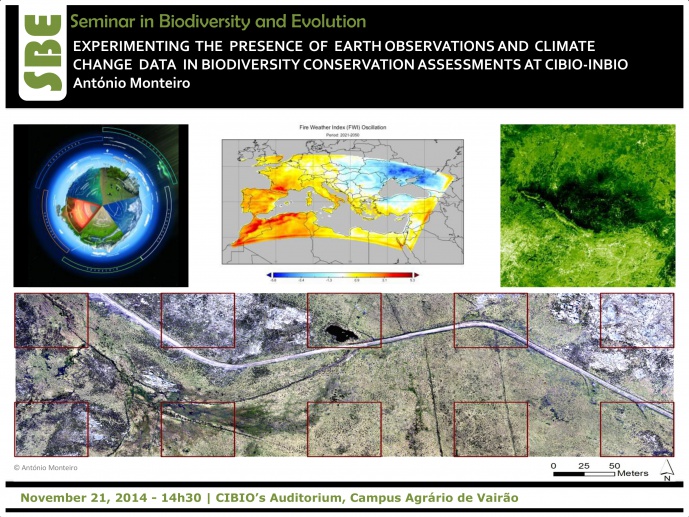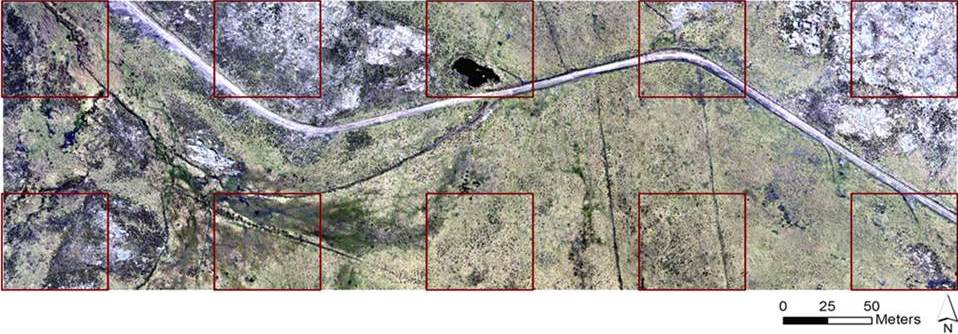ENHANCING THE APPLICATION OF EARTH OBSERVATIONS IN BIODIVERSITY AND ECOSYSTEM ASSESSMENTS- EXAMPLES FROM ONGOING RESEARCH AT CIBIO-InBIO


World population is now exceeding 7000 billion people and an increase by 40% over the next three or four decades is expected. Strong enhancement of global food demand together with change in climate conditions may seriously impact ecosystems and their biodiversity, which represent natural life support service suppliers and capital assets.
In such context, the continuous monitoring of ecosystem properties will be essential to regulate human and climate change related induced alterations. Earth observations and climate change projections are nowadays two major instruments in such monitoring and their potential will be only fully used through application in trans-disciplinary studies.
At CIBIO-InBIO, we are experimenting a more frequent presence of earth observations and climate change data in biodiversity conservation assessments and models. I will share current experiences, namely: the knowledge-based land-cover/habitat classification system for fire-prone landscapes under abandonment, the UAV-based rapid assessment of habitat extent and condition in fine-scale mosaics under changing land use, and carbon stocks and REDD initiative in the Angolan scarps of Kumbira. I will conclude with projections on wildfire danger across the protected areas of Mediterranean Basin during 21st century.
António Monteiro is a post-doctoral researcher from Predictive Ecology (PRECOL) who joined CIBIO-InBIO in June 2013. He aspires to become a remote sensing scientist and focused with colleagues on the quantification and integration of ecosystem functional attributes into modelling frameworks assessing plant and bird diversity, biomass accumulation, carbon stocks and ecosystem services, habitat condition and quality. Alone, remote assessed ecosystem functional attributes are also being used to develop governance and management tools for mountain fire-prone landscapes where recurrent fire occurrence may drive and influence the existent diversity of life.
He obtained his PhD in Science and Agro-technology at University of Milan (Italy), doctoral school “Earth, Environment and Biodiversity”. Until June 2013 was junior scientist at the Euro-Mediterranean Centre on Climate Change (CMCC-IAFENT), Italian IPCC focal point.
[Group Leader: João Honrado, Predictive Ecology]
Image credits: António Monteiro
